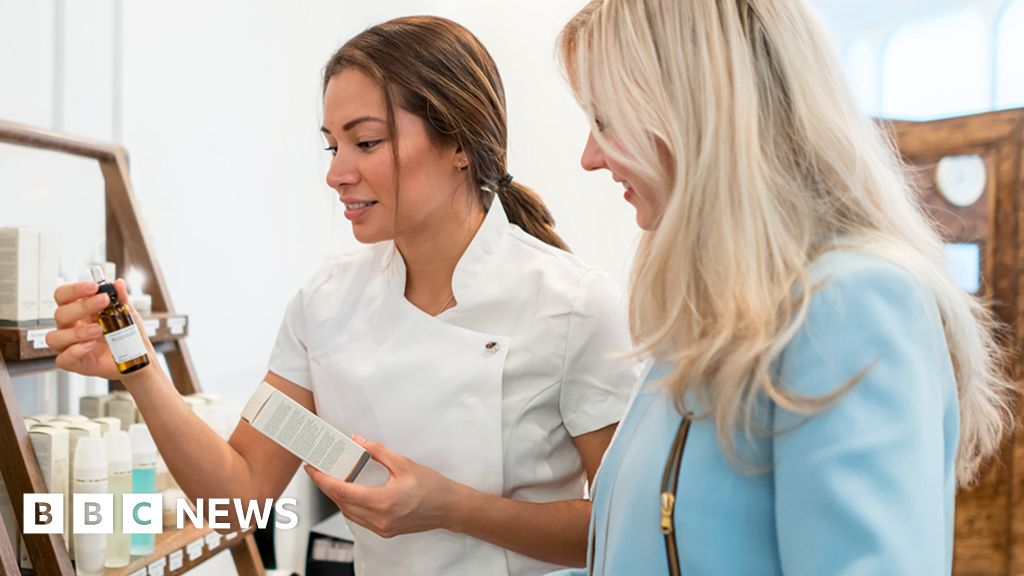Canadian retail sales rose more than expected in June, indicating a rebound in activity, particularly in the motor vehicle and parts dealers, sporting goods stores, and gas stations sectors, while spending on rate-sensitive products like furniture contracted.
Despite overall solid consumer spending, retail earnings reports indicate a shift towards more cautious shopping habits, with lower-income shoppers feeling economic pressure and opting for essential items and discounts at off-price and discount retailers. Delinquencies on department store credit cards are rising, suggesting a stretched consumer, and retailers are bracing for the impact of the resumption of student loan payments on shoppers' budgets. The upcoming back-to-school season and Halloween will serve as indicators for the rest of the year and the holiday season.
Despite initial concerns, some malls in America have experienced a recovery from the pandemic-induced decline in consumer activity, with more stores opening than closing in 2022 and an 11% increase in sales, according to a report from Coresight Research. Mall occupancy rates have also increased, and traffic levels have risen, indicating a positive outlook for physical retail.
Prices in British shops have risen at their slowest rate since October, with a 6.9% increase in the year to August, due to rising costs of meat, potatoes, and cooking oil, as well as a reduction in grain exports from Ukraine and export restrictions on rice from India, according to the British Retail Consortium.
Consumer spending in China rebounded in August, with all categories, including apparel, automotive, food, furniture, appliances, and luxury, experiencing increased sales compared to July, according to a survey by the China Beige Book. Retail sales in July rose by 2.5% year-on-year, raising concerns about China's economic growth, but the August survey showed a surge in spending, particularly in the services sector, which saw continued strength in travel and hospitality. Additionally, corporate borrowing increased as the cost of capital declined, indicating a boost in business activity. However, China's property sector continued to worsen, with house prices barely growing and home sales declining.
British consumer spending growth slowed in August, despite a surge in cinema takings after the release of films like "Barbie", with spending on essentials such as food and fuel growing at its slowest rate since April 2020, pointing to a weakening economy.
British grocery inflation fell to its lowest level in a year in September, with prices rising fastest in products such as eggs, sugar confectionery, and frozen potato products, providing some relief for consumers and the government.
Despite claims by the Biden administration and corporate media that inflation is decreasing, the latest consumer price index from the Bureau of Labor Statistics shows that Americans paid 3.7 percent more for basic consumer items in August compared to the previous year.
Retail sales in the US remained resilient in August, with a 0.6% month-on-month increase, surpassing expectations of 0.2%, indicating a positive trend for the economy.
Wholesale inflation in the US rose more than expected in August, with the producer price index increasing by 0.7%, the largest monthly gain since June 2022, counteracting recent data that suggested price increases had been slowing down.
August retail sales in the US exceeded expectations, with a 0.6% increase driven by higher gas prices, although underlying goods and services spending lost momentum and July's gain was revised lower, according to the Commerce Department.
Retail sales in the US rose 0.6% in August compared to July, but the increase in gas prices could impact consumer spending during the holiday shopping season, according to a report from the Commerce Department. Excluding gas sales, retail sales only increased by 0.2% in August.
China's retail sales and industrial production exceeded expectations in August, with retail sales growing by 4.6% and industrial production growing by 4.5%, but fixed asset investment lagging behind at 3.2%, indicating potential instability in the external environment.
Holiday retail sales are expected to increase in 2023 despite slowing growth, with inflation moderating and e-commerce playing a significant role.
US retail sales, excluding automotive, are expected to rise by 3.7% over the holiday shopping season, indicating a return to pre-pandemic levels of holiday spending, driven by a more normal inflation environment and consumers' willingness to spend on experiences, electronics, and dining out.
